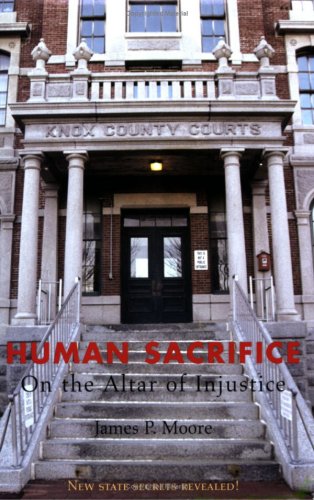Trial and Error
The Outcry for Justice in the Dennis Dechaine Case
Former AG Jon Lund’s Letter to the Editor
Oct 3, 2012
Below are two letters to the editor written by Jon Lund, Maine’s first full-time Attorney General and former Chair of the Maine Criminal Law Review Commission. His 2008 letter (at bottom) was ignored by the media. His latest, written since the discovery of additional DNA evidence, appeared in the Kennebec Journal on October 2, 2012.
October 2, 2012 at 12:00 AM
AG should take fresh look at Dechaine case
Letter to the Editor
In his recent non-fiction book,”The Innocent Man,” John Grisham chronicles how many prosecutors in the United States fight tooth and nail to avoid a determination that they have made a mistake and convicted an innocent man.
In Maine, the prosecutors objected to a delay in Dennis Dechaine’s trial in order to have DNA testing done. The prosecutors prevailed and, as a result, the trial went ahead without the results of DNA testing.
Recently, when tests of the DNA from the victim’s fingernail clipping proved to be from some person other than Dechaine, the Attorney General’s office argued that the nail clipping was contaminated by sloppy practices of the medical examiner’s staff.
Next, the AG’s office objected to having the victim’s clothing scraped for DNA, saying that scrape tests would not bring to light anything new.
We now find that they were wrong about that.
I would urge Attorney General William Schneider to take a fresh look at the case and review whether his office is seeking that justice be done, as is its legal duty, or is simply defending the Dechaine conviction by every means available.
Jon Lund
Hallowell
Feb 12, 2008
From: Jon Lund
To: Bangor Daily News editorials <>;
Subject: fair trial
Frmer Attorney General Jon Lund’s unpublished letter to the Editor of Bangor Daily News
In his Feb. 12 piece regarding Dennis Dechaine’s conviction, Emmet Meara writes that when he covered the trial as a reporter, he was convinced of Dechaine’s guilt.
There is important evidence that the jury did not hear and of which Mr. Meara is unaware or chooses to ignore. Sarah Cherry was brutally mutilated and murdered and most likely tried to defend herself. Tests have now shown that the DNA material removed from her fingernails were not Dechaine¹s but came from some other male. The jury didn’t hear that evidence, and Mr. Meara does not try to explain it away. If the jury had been told of the DNA evidence, they might have
reached a different verdict.
If you did the crime, would you request DNA testing? Dechaine’s attorney did request DNA testing, but the presiding judge denied the request. Moreover, additional evidence in the form of a rape kit in the possession of the Attorney General’s office was destroyed after Dechaine filed an appeal. DNA testing of that evidence could have confirmed the other DNA findings.
All over the United States, DNA evidence is demonstrating that innocent men and women have been wrongly convicted of crimes by courts and juries, and the numbers are shocking, especially in the state of Texas. But here, in Maine, where we are proud of our fine court system, we choose to close our eyes when DNA evidence points to judicial error. This writer prosecuted crimes, including homicides, as Kennebec County Attorney, served as chair of our Criminal Law Revision Commission, and served as this state’s first full-time attorney general.
I do not know whether Dennis Dechaine is guilty or innocent, but I do not believe he received a fair trial, and that is what we are supposed to provide in this state.
Jon Lund
Hallowell
